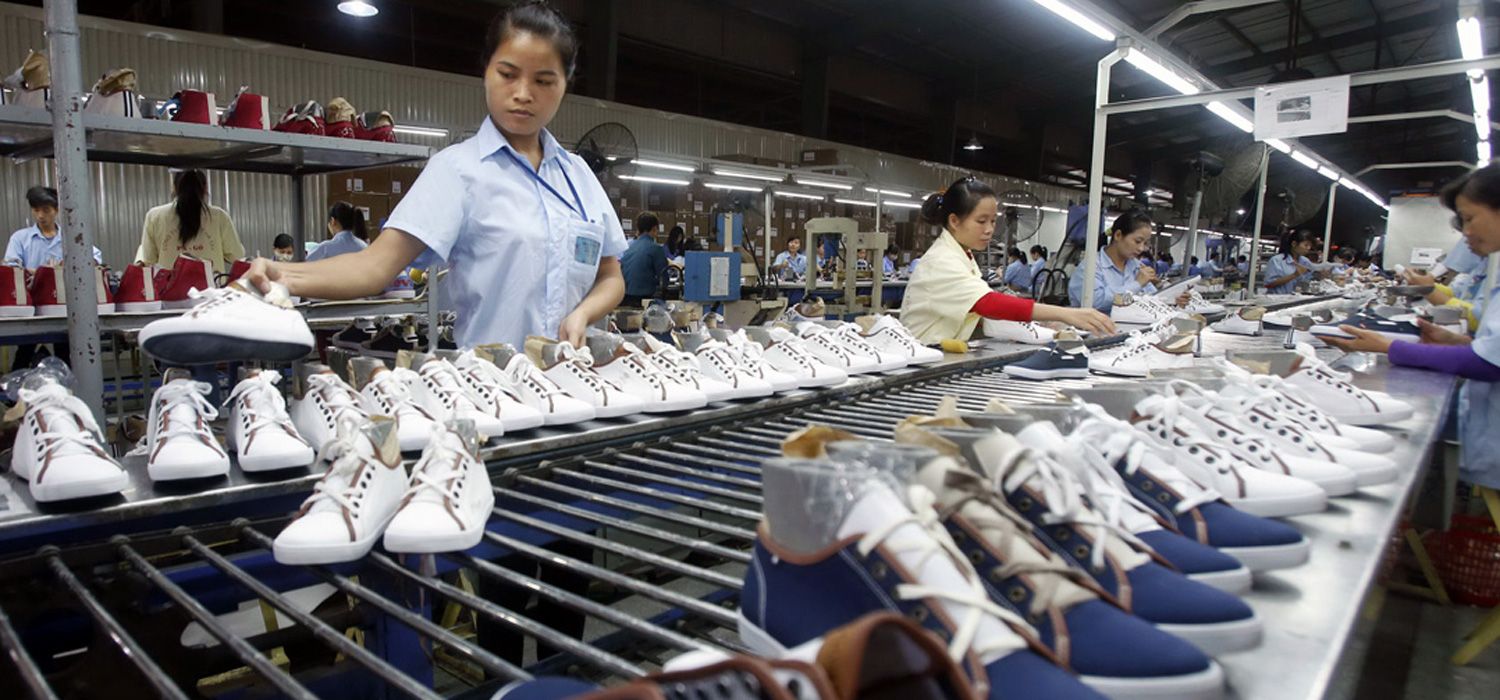
Il Sole 24 Ore – The footwear industry chooses Vietnam
First imperative: «Follow the customer». Indeed, in the case of Coronet, one of the largest Italian producers of synthetic leather for the footwear, clothing and upholstery industry, the imperative is to follow the customers’ suppliers. These include some major global footwear brands (Clarks, Coach, Ninewst etc.) that have their models produced in China, where Coronet itself is already present with a factory located near Dongguan in the southern province of Guangdong.
The supply chains of the footwear industry are changing. Many factories are relocating production to Vietnam and Coronet has chosen to go with the flow: within the next year it will start production at a plant in the Giaop Long industrial park, an hour and a half drive from Ho chi Minh City. «The initial goal is to reach 2 million square meters per year but we have foreseen the space to grow a lot. We will send part of the materials from China and, thanks to the free trade agreements between it and the ASEAN countries, we should not have problems with tariffs ”, explains Umberto De Marco, executive advisor of Coronet.
The reasons for this migration of the footwear supply chain have been known for some time: costs in China (including wages) are growing, the availability of labor in the coastal provinces is increasingly difficult. And even the migration to the internal provinces of the country, promoted by Beijing, is not easy and not only for logistical reasons: districts such as those of large-scale shoe production cannot be improvised in a short time.
Better then Vietnam, where the context is more favorable: labor is still there, costs do not increase as in China (also due to the devaluation of the currency), manual dexterity and people’s motivation are generally judged to be higher. Thanks to these factors and the strong growth of the footwear districts around Hanoi and Ho Chi Minh City, Vietnam now ranks fifth in the world ranking of footwear exporters, with sales abroad of 7.25 billion dollars. But similar considerations also apply to other supply chains: textile / clothing (17.15 billion), mobile (4.67 billion), electronic products (20 billion).
«The free trade agreements between the ASEAN countries that cover all of Southeast Asia and extend to China, Japan and South Korea – underlines Alberto Vettoretti, managing partner of Dezan Shira & Associates, a consultancy company present in the area – make Vietnam an extremely competitive base for covering Asian markets. Then there are the ongoing negotiations for similar agreements with the European Union and the Pacific countries. Furthermore, the moment to enter the market is extremely favorable: inflation is falling and rental costs are also falling ».
What are the opportunities for Italian small and medium-sized enterprises? The Vietnamese ambassador to Italy, Nguyen Hoang Long, who spoke yesterday in Milan at a forum in Assolombarda dedicated to business opportunities with Vietnam, replies: «The sector where Italian SMEs have the greatest cards to play is that of instrumental mechanics: machines tools, textile machinery and for the footwear industry, the entire supply chain of packaging and food processing, agricultural machinery and plastics. In Vietnam, exporting industries included in global supply chains need quality ». Long, a Bocconi graduate and who knows the Italian business fabric well, has promoted the creation of a series of consulting desks managed by the Chambers of Tuscany, Veneto and Emilia Romagna to promote greater attention to his country. The first result is a mission to Ho Chi Minh City and Hanoi focused on the mechanical sector and coordinated by Unioncamere, which will take place in the coming weeks. The creation of technical training initiatives in Vietnam in collaboration with Ucimu, Acimit, Acimall, Assomac is also in the works. «To grow and keep up with market demands – adds Long – our companies need training. Other competitors of Italy, primarily Germany, are extremely active in this field ».
The second problem to be solved is that of credit and in particular of guarantees on medium and long-term loans. Which, in the case of Vietnam, are crucial as most local companies, especially private ones, need to be financed following the tightening in place in the country. The Italian machinery exporters, on the other hand, complain about the lack of a Sace presence on the market: «It is a problem – concludes the president of Ice-Agency, Riccardo Monti – of which we are aware and that the Italian System is trying to solve through a possible contribution from Cassa Depositi e Prestiti».